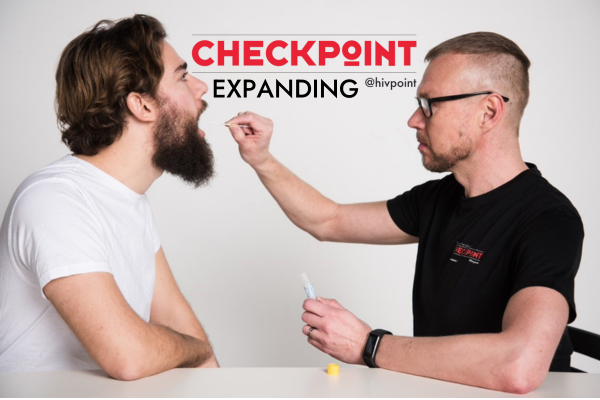
In addition to HIV, we will start testing for other sexually transmitted infections on a weekly basis. The service is intended for gay, bi and other men who have sex with men. The first testing date is the 5th of March. The testing takes place at Hivpoint’s office in Kalasatama. The Checkpoint testing service is free of charge. Testing is mainly available by appointment but once a month it is possible to just walk-in without an appointment.
What STIs are tested at Checkpoint?
At Checkpoint STI testing service, it is possible to get tested for chlamydia, gonorrhea, syphilis, and HIV. Chlamydia and gonorrhea tests are taken as a urine sample or as rectal or throat swab according to what kind of sex you have had. Syphilis and HIV are tested from the blood, either with a rapid test or as a venous blood sample.
When should I get tested for STIs?
STIs are sexually transmitted infections caused by bacteria or viruses. STIs can be transmitted through vaginal or anal intercourse, oral sex, or rimming when a condom or dental dam is not in use. You should get tested if you have been at risk of contracting an STI. Read more STIs here.
How and when can you get tested for STIs at Checkpoint?
You can get tested for STIs on Tuesdays. Appointments are mainly between 2PM and 6PM. The testing will be taking place at Hivpoint’s office in Kalasatama. The address is Hermannin rantatie 2 B, more detailed arrival instructions can be found here.
The testing service operates mainly by appointment. The easiest way to book an appointment is to book it from our on-line booking system.
When booking an appointment, we ask for your name and email address to which the booking confirmation will be sent. You can also book an appointment via our counselling services.
On the first Tuesday of every month, we have a walk-in STI testing service which you can enter without an appointment. Check a more detailed schedule here.
Who is Checkpoint intended for?
The Checkpoint testing service is primarily intended for gay, bi and other men who have sex with men. In addition, the service is for gender minorities who have been at risk of contracting a sexually transmitted infection.
What kind of barriers can STI testing have?
Lack of trust in health services and expected stigma can significantly make it more difficult to get tested for STIs. Lack of trust may be due to health care professionals’ normative attitudes towards sexuality and gender or experiences of racism or discrimination in health care settings. Fear of potential consequences of a positive test result can also be a barrier for getting tested.
An obstacle for STI testing can also be that it can be difficult to get information about sexual health and the health care service system. The use of services may also be delayed by the requirement for strong authentication and the transition from face to face or phone services to electronic services.
Different cultural or religious backgrounds and belonging to a sexual or gender minority may also raise the threshold for seeking testing due to prevailing attitudes and social structures.
Some HIV-positive people may also have a high threshold for getting tested for sexually transmitted infections, because HIV is often associated with prejudice and outdated information in health care.
Why is Hivpoint now testing for other STIs in addition to HIV testing?
HIV is one of the sexually transmitted infections. If there has been a chance of contracting HIV, there is also the possibility of other sexually transmitted infection. It makes sense to test for all STIs at the same time. Also, it is good to note that chlamydia, gonorrhea and syphilis are much easier to transmit than HIV.
The number of STI infections has increased in recent years, and gonorrhea infections in particular have increased significantly. Especially infections are diagnosed in men who have sex with men. Sexually transmitted infections are usually asymptomatic and they are also easily transmitted asymptomatically. In connection with testing, it is possible to provide targeted counselling to support the prevention of STIs.
Is it still possible to get an HIV rapid test weekly at Hivpoint without an appointment?
Yes. You can still get an HIV rapid test every Thursday without an appointment. However, it is worth noting that the opening hours of Thursday’s testing will change from March 1st onwards. You can get tested for HIV on Thursdays between 12pm and 4pm.
How is Checkpoint testing funded?
The testing of STIs is made possible by a project grant from the Ministry of Social Affairs and Health, which has been granted for 2024 and, preliminarily, also for years 2025–2026. In addition, testing is funded in cooperation with MSC Finland Tom’s Club with support from the Spartacus Fund. The testing service is free of charge for the customer. We will continue to work towards obtaining permanent funding for our testing activities from the wellbeing services counties of Helsinki and the surrounding areas.
